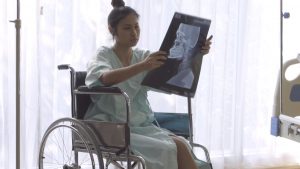
Free Consultation(203) 447-0000

Free Consultation(203) 447-0000

Medical negligence can give rise to surgical complications in two different ways: when negligence itself creates a surgical complication, and when an unavoidable surgical complication is not recognized and properly treated due to medical negligence.
Surgeons are sued for malpractices at higher rates than the average doctor. In fact, about 15 percent of all general surgeons experience at least one malpractice claim in any given year. That adds up to about a 99 percent chance of being named a defendant in at least one malpractice lawsuit during an entire career. This rate exceeds all medical specialties except for two other surgical disciplines: neurosurgery and thoracic surgery.
Not necessarily. Indeed, if that were the case, then any doctor who treated a patient, who later died, would be liable for malpractice. Since everybody dies sooner or later, that would leave so many doctors drowning in wrongful death lawsuits for malpractice that it would be hard to see who would dare to practice medicine (or who could afford to pay the malpractice insurance premiums). Such an outcome would be bad for both doctors and patients.
In real life, no matter what harm a patient suffers, even death, the medical treatment provided to the patient must have fallen below a professional standard of care before a malpractice claim is warranted. Defining this “professional standard of care,” however, is like trying to hit a moving target. It depends on the circumstances, the particular medical specialty, and the nature of the allegedly improper acts or omissions attributable to the defendant.
In some cases, the standard of care is obvious and can be determined through common sense alone. A surgeon who operates on a patient while drunk, for example, has certainly fallen below the standard of care to be expected of any doctor in any medical specialty. In most cases, however, the applicable standard of care is not nearly so clear-cut and must be determined by the court after hearing testimony from expert medical witnesses.
Three general statements can be made about the malpractice standard of care with respect to surgeons:
Surgical errors are frighteningly common. In fact, they constitute about one-fourth of all malpractice claims according to Coverys, a major malpractice insurer. Some of the main reasons why surgical errors occur include acts and omissions that may or may not constitute malpractice themselves, but which trigger a chain of events that lead to malpractice or render it more likely. These reasons include:
It is impossible to provide a complete listing of all possible surgical errors, because such a listing would include more items than a list of all possible surgeries. The following, however, are brief descriptions of some of the most common or egregious surgical errors that trigger malpractice lawsuits.
Anesthesiology is a critical component of surgical procedures, and anesthesiology mistakes can be quite serious. The anesthesiologist’s job starts before surgery, as he collects details about the patient’s medical history. The anesthesiologist must get it just right. Too little anesthesia can cause the patient to awaken during surgery, while too much can cause brain damage.
A surgeon needs steady hands. A certain amount of organ or nerve damage is not at all uncommon in surgery, and this compilation does not always count as malpractice – it may be unavoidable. On other occasions, however, the slip of a scalpel can cause serious complications such as permanent nerve damage or undetected internal bleeding and can be attributed to medical negligence.
Major surgery weakens a patient, rendering him more vulnerable to infections that could result in serious surgical complications. If the patient’s immune system is already weak (as is likely to be the case with an elderly patient, for example), the result could be deadly. The use of medical equipment that has not been properly sterilized, for example, could cause a life-threatening infection.
Post-operative care is part of the whole surgical process, and negligent post-operative care can seriously harm or even kill a patient. One mistake often made by doctors, especially at busy hospitals, is premature discharge. Another common mistake is the failure to properly follow up on the patient’s condition to prevent or to mitigate postoperative complications.
Wrong-site surgery is one of the most frightening medical errors imaginable. Suppose, for example, that a doctor amputates a patient’s right arm rather than his left arm. Wrong-site surgery has been designated a “never event” by the National Quality Forum – a medical event that should never happen, no matter what the circumstances
Wrong patient surgery is another “never” event that should never happen but sometimes does. A patient, for example, may be subjected to unnecessary surgery. Such surgery may cause not only pain and inconvenience, but also complications and long-lasting physical consequences.
Would you want your doctor to sew you up on the operating table with a medical instrument – such as a sponge or even a scalpel – still inside your body? It happens more often than you might think, especially with sponges. One reason this happens is the failure to count all of the medical instruments that are inserted into the patient’s body in the first place – an omission that can be characterized as negligent.
 Some surgical complications are unavoidable; and to the extent that they are unavoidable, they cannot be the subject of a malpractice claim. When unavoidable complications arise, however, it is important that the surgeon become aware of the existence of the complication and react appropriately in order to avoid a malpractice claim based not on the existence of the complication itself, but on how the doctor handled it.
Some surgical complications are unavoidable; and to the extent that they are unavoidable, they cannot be the subject of a malpractice claim. When unavoidable complications arise, however, it is important that the surgeon become aware of the existence of the complication and react appropriately in order to avoid a malpractice claim based not on the existence of the complication itself, but on how the doctor handled it.
A doctor might, for example, damage an organ that is adjacent to the organ that is being operated on. Furthermore, these two organs might have been placed so close to each other that a certain amount of damage was inevitable, and the doctor might not have discovered the problem until after the surgery had already begun. If he damaged the organ but failed to repair it because he did not realize the damage, he might have committed malpractice.
Discovering that surgery-related medical negligence likely caused the harm that you suffered is one thing – proving it in court is another. The types of evidence typically used to prove surgical malpractice include expert medical witnesses, medical records, a subsequent examination by a third-party health care provider, and eyewitness testimony (from a nurse, for example).
If you have enough evidence to make a credible claim of malpractice, then perhaps the best way of obtaining enough further evidence to actually prove your claim in court, or to compel a private settlement, is to file a malpractice lawsuit. This will allow you to question the defendant under oath, demand the production of medical records, and collect other evidence.
The vast majority of malpractice claims are settled out of court. This applies even to claims for which a malpractice lawsuit is filed. In many cases, the reason the lawyer files the lawsuit is so that he can gather more evidence to use as leverage in settlement negotiations.
When a malpractice lawsuit is based on a healthcare provider’s inadequate response to unavoidable surgical complications, the types of evidence mentioned above will be needed to answer the following questions:
If you believe that you may have been harmed by malpractice, you need to secure experienced legal representation even before you are certain that malpractice was the culprit. Indeed, you might not ever make this discovery without the assistance of a malpractice lawyer.
Call Berkowitz Hanna today or simply contact us online so that we can provide you with a free case consultation. We won’t charge you anything, ever, unless we win your case.
Berkowitz Hanna
